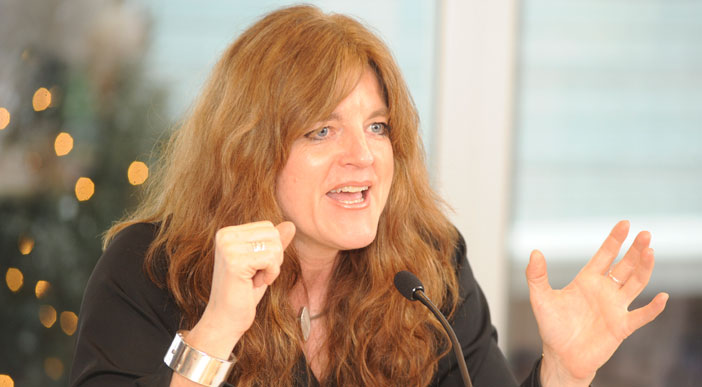
Addressing a standing-room-only audience gathered to discuss the January 9th referendum in Southern Sudan, Hilde F. Johnson said it was crucial for the international community to “speed up the process on resolving the critical post-referendum issues and to do so urgently.”
Listing those issues, she said, “This means border demarcation, cooperation on oil and pipeline use, it means freedom of movement of goods and services and economic cooperation, it means border control and citizenship, just to mention a few.”
She added, “The decision is by the Sudanese, but we are part of the solution as well.”
Ms. Johnson led a policy forum discussion on January 7th at IPI on the ramifications of the referendum, which is widely expected to result in the creation of a new African state in Southern Sudan.
Entitled “The Sudan Referendum: History and Future,” the discussion was based on her new book Waging Peace in Sudan: The Inside Story of the Negotiations That Ended Africa’s Longest Civil War. The book details her deep involvement in negotiating the Comprehensive Peace Agreement of 2005 that brought an end to a twenty-year-war that cost 2 million lives and laid the groundwork for the referendum.
At the time, Ms. Johnson was Norway’s Minister for International Development. Since August of 2007, she has been the Deputy Executive Director of the United Nations Children’s Fund (UNICEF).
She was joined on the panel by Susan Page, Deputy Assistant Secretary of State for African Affairs at the US State Department, and Suliman Baldo, Director for Africa at the International Center for Transitional Justice. Moderating was Warren Hoge, IPI’s Vice President for External Relations.
Daffa-Alla Elhag Ali Osman, the Permanent Representative of Sudan to the UN, took the rostrum to declare his government’s support for the referendum whatever its outcome. But he added, “We are fully committed to the referendum, but that doesn’t deprive me from saying it is very unfortunate.”
He said it would “open a Pandora’s box for Africa,” noting that ethnic, religious and economic divisions existed in many African countries like his where borders had been drawn up by European powers. He warned that these divisions could become the “seeds of conflict” across the continent.
Ms. Johnson said that while the holding of the referendum represented an important step forward for the embattled country, it was really only the beginning of a difficult process of bringing lasting peace to Sudan.
She said that failure to follow through could trigger a return to war between the north and south and fragment the Sudanese state. Making sure that didn’t occur, Ms. Johnson said, “is our responsibility. Waging peace in Sudan is more important than ever. In fact, it is now that the job really begins.”
![]() Read transcript
Read transcript
News coverage
Eyes on Sudan Ahead of Southern Referendum [CRIENGLISH]







